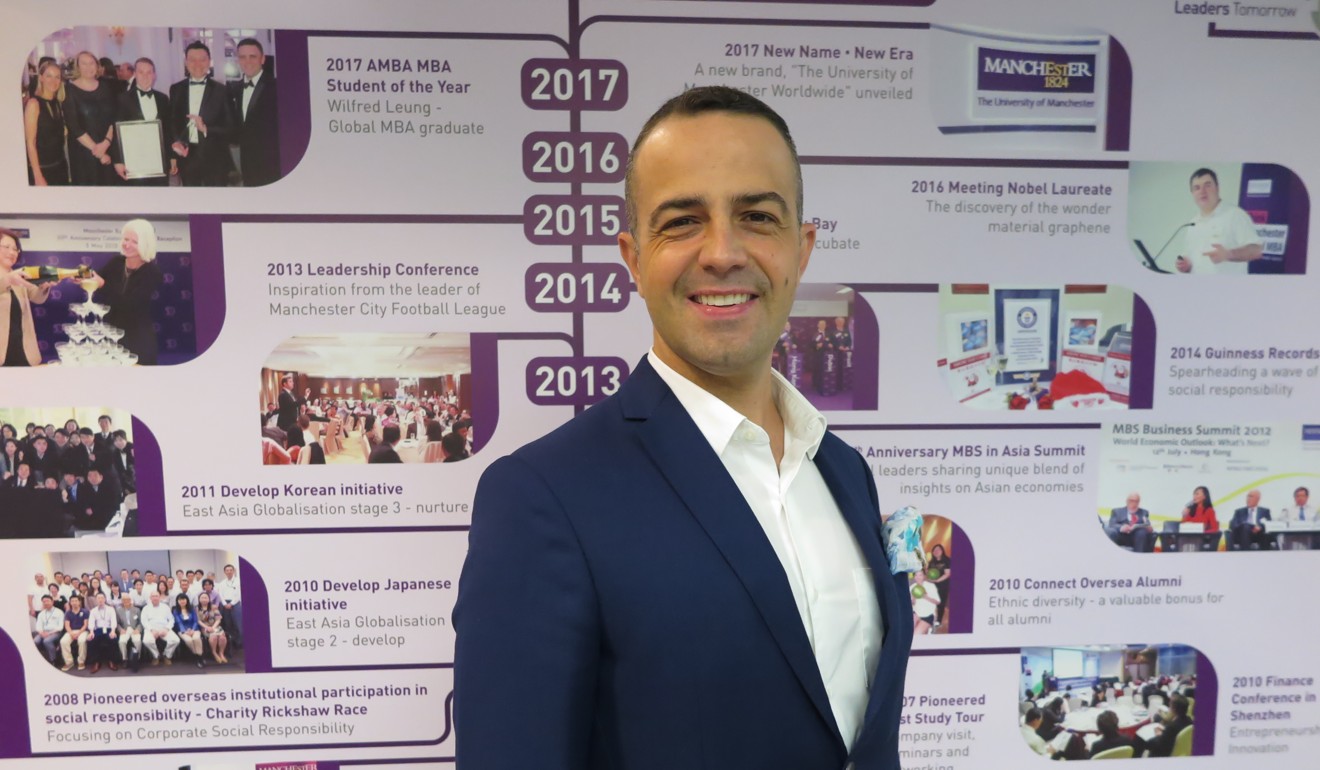
Beyond career and gold
- Instead of teaching just the nuts and bolts of the topic, business degrees are providing wider skill sets that equip students to face tougher challenges
An MBA has long been regarded as a “career passport” that boosts the employability and salary of its holder. But it has recently gone further, thanks to a change in the mindsets and demands of MBA students.
“I was expecting it to provide me with the opportunity to update and upgrade my knowledge across the numerous disciplines that are fundamental to any business in today’s increasingly competitive environment,” says Luca Donati, chief strategy officer, Magazzin Fashion Group, coffee entrepreneur and alumnus of the Global MBA at Alliance Manchester Business School.

In Donati’s view, the modules are all relevant and useful for his career progression, with strategic management the one he found most insightful. From this, he says, he was immediately able to understand how to adapt the different concepts and theoretical models to the listed practical case studies.
“I have ultimately used my learning to progress my career in recently being employed as a chief strategic officer for a fashion group, as well as running an F&B-related start-up on the side. I obviously have ambitions to keep improving in the decisions I make, and an MBA should ultimately prepare you for undertaking more challenges in future,” he says.
To Jeffrey Ng, a CUHK (Chinese University of Hong Kong) MBA alumnus from the class of 2012, real-world problems demand people with cross-disciplinary talents such as technology, economics and people skills.

“Gone are the days of MBA instruction and leading with no appreciation of data and digital transformation. Execution means combined roles in decision-making,” Ng says.
The head of data lab, chief data office Asia-Pacific, BNP Paribas builds up teams in the bank through advanced analytics, as well as being one of the key contact points on fintech topics and vice-chairman of the fintech committee at the French Chamber of Commerce.
“I am writing an IT book on AI in finance, aiming to share my knowledge of the topic, which involves more than just trading. My inspiration is to help the financial industry transform itself inside out and make lasting change,” he says.
“I also want to help the Hong Kong education system by providing much-needed skills that are in demand in the real world. We need to equip students with ‘a digital utopia’ before they enter the workforce to help build our society.”
Ng’s MBA not only bought him to his current employer, he recalls; more importantly, it helps him benchmark himself and appreciate his strengths and weaknesses. “Personally, it gave me the confidence to anticipate and handle business needs using cool, cold facts,” he says.

